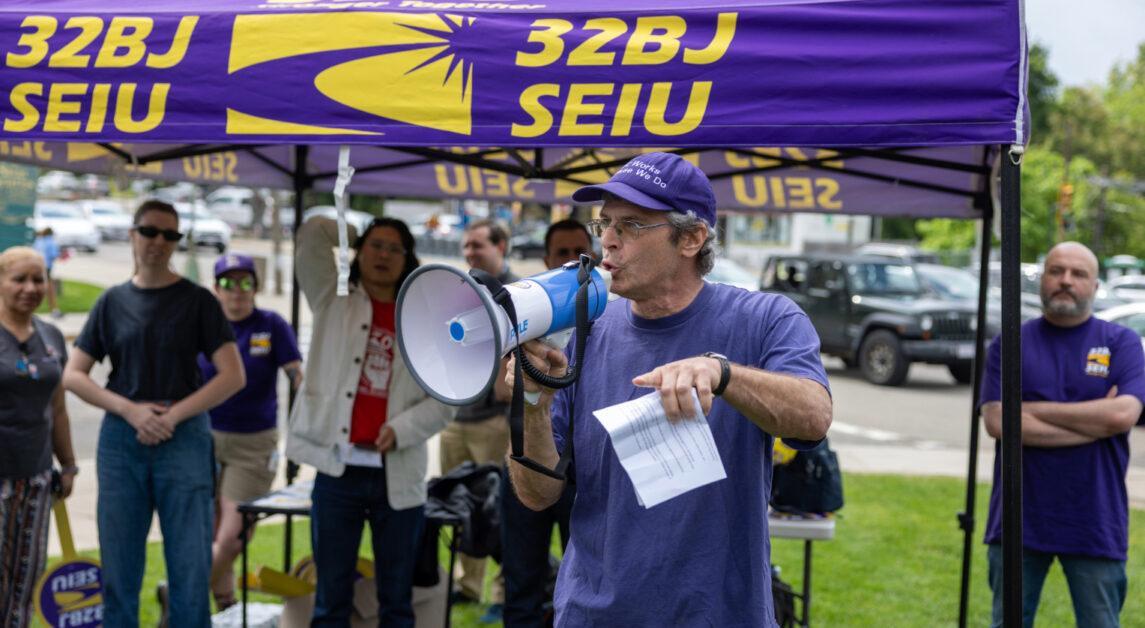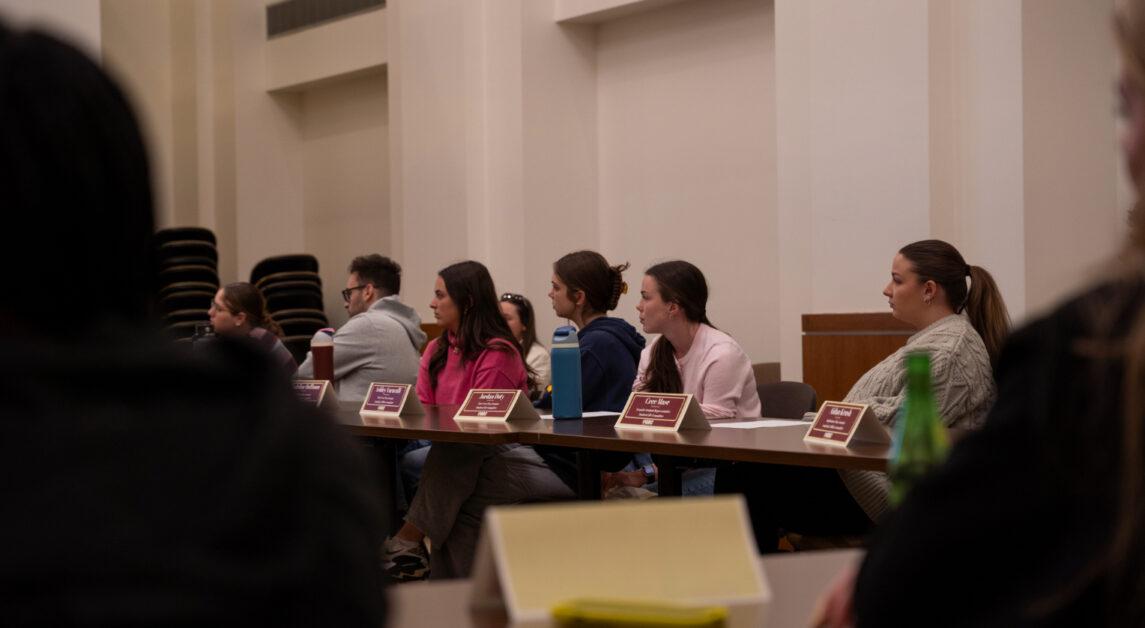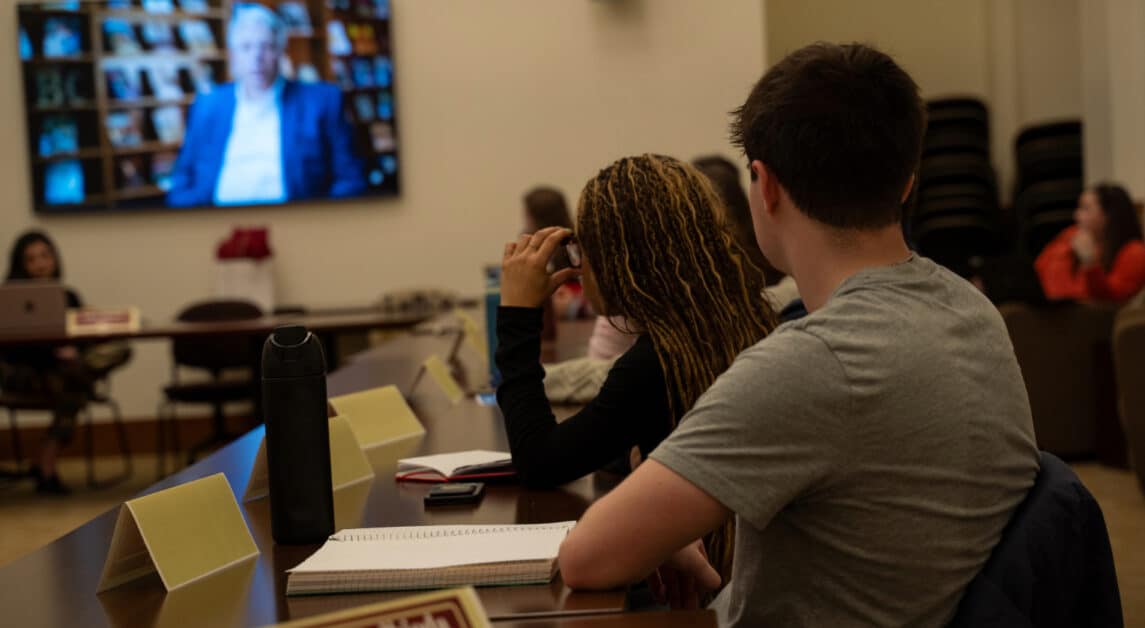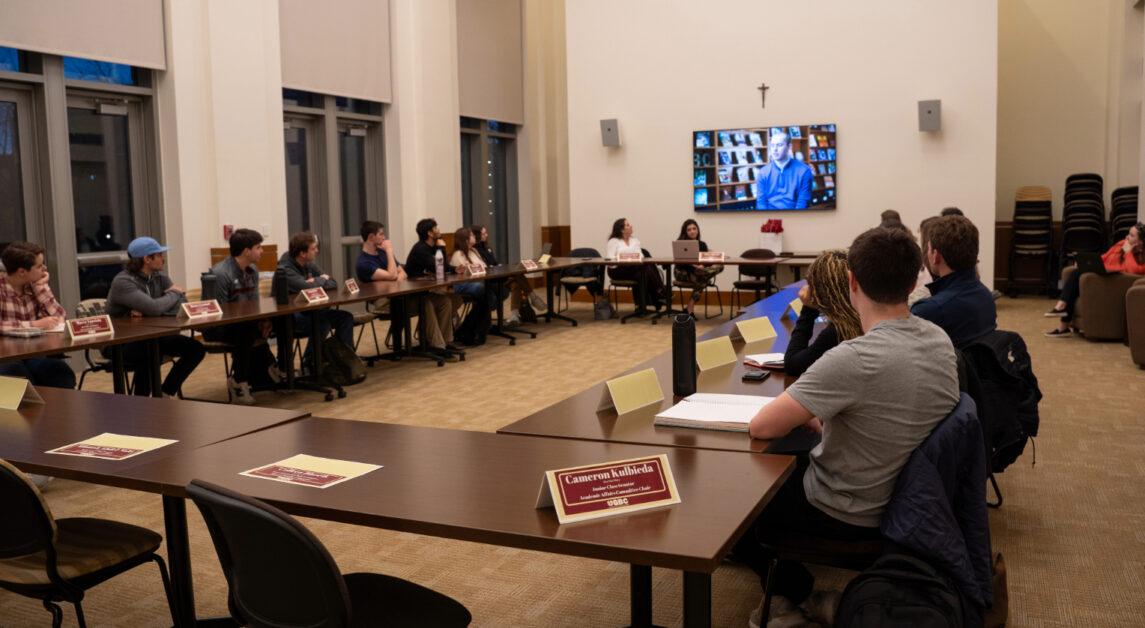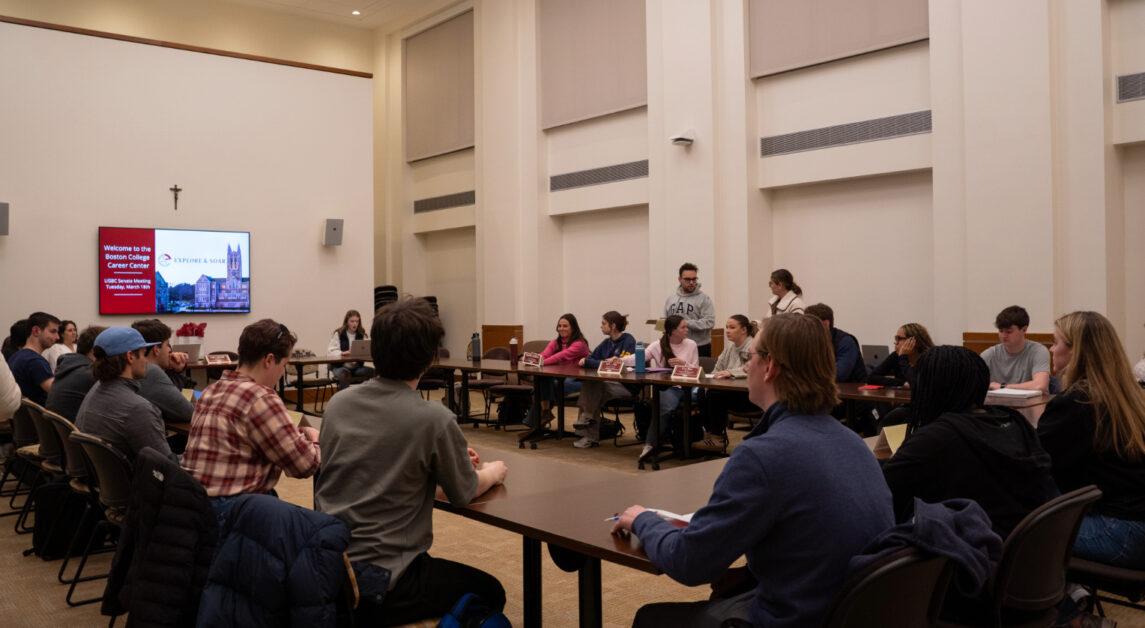American University professor Joseph Young told the story of Raisal Raihon, an immigrant youth who felt “marginalized” and “at some points depressed” while living in the United States on Friday in McGuinn Hall. Raisal, converted to Islam with the influence of his sister, departed from Ohio for the Middle East where he would fight and ultimately die for the radical Islamic group known as ISIS.
His lecture, titled “Choosing to Fight, Choosing to Die, The Rise of the Suicide Foreign Fighter,” Young presented research on the motivations of insurgents like Raihon. Young conducted research along with Daniel Milton, director of research for the Combating Terrorism Center (CTC) at West Point, and American University Ph.D. student Tyler Evans. Their work is an analytical investigation of over 4,000 foreign applications to ISIS attained directly from the organization’s records. Their work was ground-breaking, in part, because the data achieved presents a rare and exclusive insight into how ISIS recruits.
“Maybe it’s not too surprising, but you can’t really find people who are willing to go abroad, fight, and die for ISIS and then talk about it,” Young said.
Without the permission of a native government, leaving to fight for foreign insurgent groups like ISIS is illegal in many nations.
“For that reason alone, it’s hard to get information about the organization,” Young said.
So how did Young and his team come across thousands of individual ISIS recruitment applications? In a way, they got lucky. An ISIS defector leaked a flash-drive to the news outlet NBC, which relayed the information to Milton at the CTC.
Most of the questions on these applications were in no way esoteric—information about family, profession, and the like represent the majority of the responses in the documents, Young said.
“It looks kind of similar to other job applications you would have to fill out,” he said. “They tell you ‘don’t talk about this application with fellow recruits. Most businesses ask you to do something similar.”
The one question that would seem strikingly odd on the standard job application asks whether the applicant would be willing to take on a suicide role in ISIS. This was the major inquiry Young and his team were interested in.
Ideological commitment, biographical availability, economic opportunity cost, and nationality were the four main factors that the team initially believed would affect an applicant’s decision in answering this question, according to Young.
They found that the factor that had the most noticeable impact was the insurgent’s home country. According to the team’s examination, only 5 percent of ISIS applicants coming from Western nations volunteered for suicide roles. Eight percent of fighters from non-Western nations, however, did experience civil strife and nearly 13 percent of fighters from non-Western nations did not experience civil strife volunteered for these roles.
There are several major psychological tendencies that, according to Young, could cause this discrepancy between the percentages.
“One is what we might call status reversal,” Young said.
An insurgent like Raihon, according to Young, gains self-satisfaction through his new status in ISIS. He and other Western insurgents are less willing to lose this status by committing a suicide mission.
Young also said that fighters from countries that experienced civil strife and violence may desire to avoid the violence entailed by a suicide role. Fighters from non-Western nations that are devoid of civil strife, he said, are typically more invested in the religious cause and hence more willing to take on such a role.
For many of the fighters unwilling to take on these roles, ISIS is a sort of escape.
“This is the Caribbean of the Jihadi world,” Young said.
Featured Image by Julia Hopkins / Heights Editor




